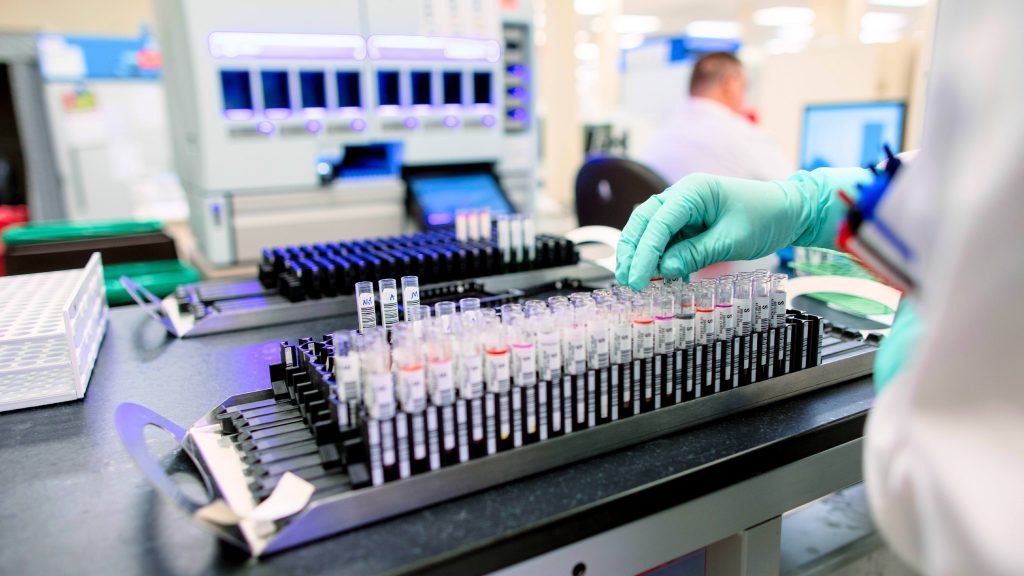-
COVID-19
Mayo Clinic Laboratories launches serology testing in support of COVID-19 response

ROCHESTER, Minn. ― A new serology test from Mayo Clinic Laboratories that is used to identify the presence of immune response to SARS-CoV-2, the virus that causes COVID-19, is now available to more health care organizations. Mayo Clinic is working closely with state and federal officials to prioritize access to its initial testing capacity to support efforts to protect frontline staff responding to the COVID-19 pandemic.
“Serology testing is a critical component to our nation’s response to the pandemic, and making this test available to our colleagues around the country is our priority,” says William Morice, II, M.D., Ph.D., president of Mayo Clinic Laboratories. “There is enormous demand for serologic testing. At this time, serology testing needs to be prioritized for efforts to identify individuals in areas where potential immunity is key – supporting health care workers, screening for potential plasma donors, and helping advance the most promising vaccine candidates.”
Initial capacity will be 8,000 tests per day performed at laboratory locations across Mayo Clinic. Capacity will be ramped up as quickly as possible. To ensure optimal turnaround times, Mayo Clinic Laboratories will implement a systematic rollout to its clients and partners. Testing will be performed 24 hours a day, and Mayo Clinic Laboratories is working to ensure turnaround time is as close as possible to 24 hours after receipt of the sample.
The serology test is intended only to detect antibodies to the virus, not to diagnose recent or active infection, and it cannot pinpoint the date of exposure. The development of an IgG antibody response to SARS-CoV-2 takes time. While some individuals become seropositive between eight and 14 days post-symptom onset, over 95% are positive after day 14. As a result, this testing is only advised for individuals at least 10 days after initial symptom onset or at least 10 days after a known exposure. It's important to note that some individuals, particularly those who are immunosuppressed, may not develop a detectable immune response (i.e., antibodies) to the SARS-CoV-2 virus.
Mayo Clinic Laboratories also offers a molecular test to diagnose very recent or active infection. Both tests are critical tools for health care providers in the ongoing response to the pandemic.
“The molecular tests help identify whether a person is currently infected with SARS-CoV-2, whereas serologic tests help indicate prior exposure to the virus and the presence of an immune response,” says Elitza Theel, Ph.D., director of Mayo Clinic’s Infectious Diseases Serology Laboratory. “A positive serology result suggests the patient is less likely to get infected or re-infected compared with individuals who do not have any antibodies in their blood. However, we are continuing to learn about the level and duration of protective immunity, and we can’t definitively say how long protective immunity may last.”
Media contact: Ginger Plumbo, Mayo Clinic Public Affairs, newsbureau@mayo.edu
________________________________________________
For the latest updates on the COVID-19 pandemic, check the CDC website. For more information and COVID-19 coverage, go to the Mayo Clinic News Network and mayoclinic.org.







